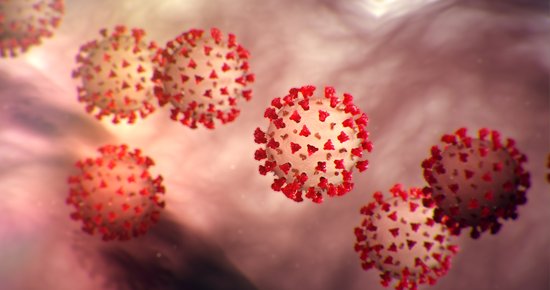A previously unseen COVID-19 variant has been identified in Humboldt County, but public health officials say current evidence suggests it was contained in a single outbreak and there is no indication that it has spread to the wider community.
In late January, Humboldt County Public Health sent dozens of samples of individuals tested positive for COVID-19 at the Granada Rehabilitation and Welfare Center, along with dozens of random samples from the County Health Laboratory in Granada. Humboldt (PHL), for routine genomic surveillance. Genomic sequencing of the samples was carried out by Chan Zuckerberg Biohub (CZ Biohub), a non-profit medical research organization that was responsible for about 45% of genomic surveillance in California.
The CZ Biohub determined that 16 of these samples had the same mutation as the virus spike protein at position N501Y, which is common among other variants of COVID-19, and Public Health has linked all 16 back to the Granada facility. Laboratory studies suggest that this mutation makes the virus “sticky” or easier for the virus to bind to a cell’s receptors, which can result in a higher rate of transmission.
Humboldt County health officer Dr. Ian Hoffman said it appears that the mutation occurred within the facilities in Granada, as the virus has spread among employees and residents. “There is no evidence to suggest that this variant was brought from outside Granada, and the data provided by CZ Biohub indicates that it was not seen anywhere else in Humboldt County,” he said. “The good news is that there was no evidence, either through genetic testing or through contact investigations, to indicate that the variant has spread to the wider community.”
Senior Biosafety Researcher at CZ Biohub, Dr. Patrick Ayscue, said: “Mutation is a natural feature of viruses, so it is not unexpected that we see variants occasionally appearing in outbreaks.” Dr. Ayscue went on to say, “What is quite remarkable here is that Humboldt County Public Health was in a position to identify a new and potentially dangerous variant, to contain it and successfully prevent it before it had the opportunity to spread more widely. It is really a credit to the hard work of local public health and its partners. “
Humboldt County PHL has been collaborating with CZ Biohub since June 2020, and the non-profit organization has sequenced more than 650 samples from Humboldt County, representing approximately 22% of the total cases. PHL’s laboratory manager, Dr. Jeremy Corrigan, said: “After packing and shipping the samples, our teams work together to analyze the sequencing data and identify any variants of concern. Sequencing also provides a measure of quality control because we can monitor the mutations that can impact the effectiveness of the PCR test we use, ”referring to the polymerase chain reaction test used by PHL. Dr. Corrigan noted that these types of partnerships are a great opportunity to leverage knowledge and resources to better understand the local conditions of COVID-19.
Dr. Hoffman described the outbreak in Granada as painful for residents, their families and caregivers, as well as for the wider community. Identifying this variant, he said, offers a better understanding of why the virus was able to spread through facilities so quickly. “Genomic sequencing is a tool that we will continue to use to help us monitor and contain variants before they become a problem,” he said.
With variations in concern increasing worldwide and here in California, said Hoffman, preventive measures are vital to keeping the spread of COVID-19 under control. “Continue to wear a mask when you are in public, keep your physical distance and wash your hands regularly.”
Read more about CZ Biohub genomic sequencing at czbiohub.org.
For the latest information on COVID-19, visit cdc.gov
or cdph.ca.gov. Local information is available at humboldtgov.org
or during business hours by contacting [email protected]
or by calling 707-441-5000.
